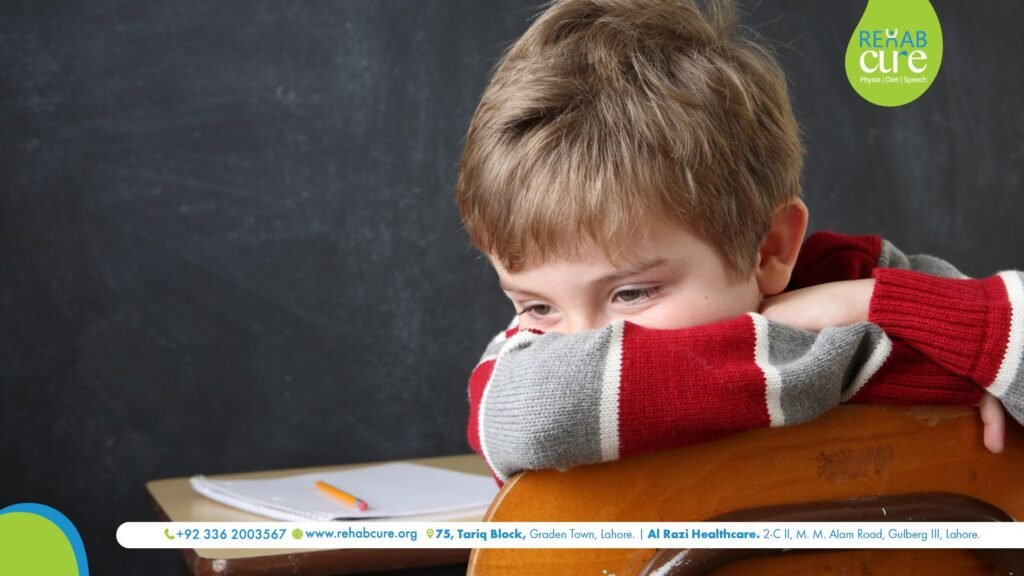Table of Contents
What is ADHD Disease?
Attention Deficit Hyperactive Disorder (ADHD) is one of the most common neurodevelopment disorders of childhood. It is usually first diagnosed in childhood and often lasts into adulthood. Children with ADHD may have trouble paying attention, controlling impulsive behaviors (may act without thinking about what the result will be), or be overly active.
Signs and Symptoms of ADHD:
People with ADHD show a persistent pattern of inattention and/or hyperactivity–impulsivity that interferes with functioning or development:
- Inattention:
Often fails to give close attention to details or makes careless mistakes in schoolwork, at work, or with other activities.
Often has trouble holding attention on tasks or play activities.
Often does not seem to listen when spoken to directly.
Often does not follow through on instructions and fails to finish schoolwork, chores, or duties in the workplace (e.g., loses focus, side-tracked).
Often has trouble organizing tasks and activities.
Often avoids, dislikes, or is reluctant to do tasks that require mental effort over a long period of time (such as schoolwork or homework).
Often loses things necessary for tasks and activities (e.g. school materials, pencils, books, tools, wallets, keys, paperwork, eyeglasses, mobile telephones).
Is often easily distracted.
Is often forgetful in daily activities. - Hyperactivity and Impulsivity:
Often fidgets with or taps hands or feet, or squirms in seat.
Often leaves seat in situations when remaining seated is expected.
Often runs about or climbs in situations where it is not appropriate (adolescents or adults may be limited to feeling restless).
Often unable to play or take part in leisure activities quietly.
Is often “on the go” acting as if “driven by a motor”.
Often talks excessively.
Often blurts out an answer before a question has been completed.
Often has trouble waiting their turn.
Often interrupts or intrudes on others (e.g., butts into conversations or games)
Causes of ADHD:
Scientists are studying cause(s) and risk factors in an effort to find better ways to manage and reduce the chances of a person having ADHD. The cause(s) and risk factors for ADHD are unknown, but current research shows that genetics plays an important role. Recent studies link genetic factors with ADHD.
In addition to genetics, scientists are studying other possible causes and risk factors including:
• Brain injury
• Exposure to environmental risks (e.g., lead) during pregnancy or at a young age
• Alcohol and tobacco use during pregnancy
• Premature delivery
• Low birth weight
Stigma of ADHD:
Myths and stereotypes are the cause of it. Among other symptoms, children with ADHD may exhibit impulsivity, inattention, and difficulty following instructions. As a result, some individuals can have unfounded misconceptions about your child’s behavior and personality. Stigma appears like this. It’s serious, and it can have lasting effects on how children and teens feel about themselves, how they interact with peers, and how they learn.
Treatments
In most cases, ADHD is best treated with a combination of behavior therapy and medication. For preschool-aged children (4-5 years of age) with ADHD, behavior therapy, particularly training for parents, is recommended as the first line of treatment before medication is tried. What works best can depend on the child and family. Good treatment plans will include close monitoring, follow-ups, and making changes, if needed, along the way.
Why is Psychological Treatment Important?
Psychologists focus on children’s fundamental cognitive abilities, educational abilities, behavior issues, and emotional issues. The overarching objective is to comprehend learning processes better and find ways to help children of all ages achieve better academic results. Therapy can improve a person’s attitude on life, relationships, and self-worth. Therapists can help people understand their own emotions better and learn how to communicate those emotions.
ADHD Treatment in Lahore:
RehabCure is the best rehabilitation center that offers ADHD treatment in Lahore. Our treatment plan typically includes a combination of education, skills training, and psychological counseling. We also offer psychological counseling to patients with ADHD. This counseling can help patients develop coping mechanisms for managing their symptoms and improve their overall well-being. Our ADHD treatment plan is tailored to the individual needs of each patient. The treatment plan may include medication, education, skills training, and psychological counseling in varying amounts.
If you are interested in ADHD treatment at RehabCure, you can contact us to schedule an appointment.
Call Now: 0336 – 2003567

